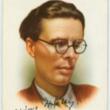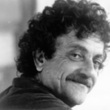Animal farm: a fairy story
Author
Publisher
Varies, see individual formats and editions
Publication Date
Varies, see individual formats and editions
Language
English
Appears on these lists
Description
75th Anniversary Edition—Includes a New Introduction by Téa ObrehtGeorge Orwell's timeless and timely allegorical novel—a scathing satire of a downtrodden society’s blind march towards totalitarianism.“All animals are equal, but some animals are more equal than others.”A farm is taken over by its overworked, mistreated animals. With flaming idealism and stirring slogans, they set out to create a paradise of progress, justice, and equality. Thus the stage is set for one of the most telling satiric fables ever penned—a razor-edged fairy tale for grown-ups that records the evolution from revolution against tyranny to a totalitarianism just as terrible. When Animal Farm was first published, Stalinist Russia was seen as its target. Today it is devastatingly clear that wherever and whenever freedom is attacked, under whatever banner, the cutting clarity and savage comedy of George Orwell’s masterpiece have a meaning and message still ferociously fresh.
More Details
Contributors
Baker, Russell,1925-2019 author of afterword
Cosham, Ralph Narrator
Obreht, Téa author of introduction
Orwell, George Author
Patchett, Ann author of foreword
Cosham, Ralph Narrator
Obreht, Téa author of introduction
Orwell, George Author
Patchett, Ann author of foreword
ISBN
9780452284241
9780547370224
9781481540544
9780547370224
9781481540544
Appears on these lists
Similar Titles From NoveList
NoveList provides detailed suggestions for titles you might like if you enjoyed this book. Suggestions are based on recommendations from librarians and other contributors.
These books have the appeal factors bleak, and they have the genre "dystopian fiction"; and the subjects "totalitarianism" and "dystopias."
These books have the appeal factors bleak, thought-provoking, and multiple perspectives, and they have the genre "dystopian fiction"; the subjects "totalitarianism," "dystopias," and "authoritarianism"; and characters that are "complex characters."
J - Jacobson, Howard
These books have the appeal factors bleak, haunting, and stylistically complex, and they have the genres "political fiction" and "dystopian fiction"; the subjects "totalitarianism," "dystopias," and "near future"; and characters that are "flawed characters," "complex characters," and "sympathetic characters."
These books have the genres "political fiction" and "allegories and parables"; and the subjects "totalitarianism," "farm animals," and "talking animals."
Domesticated animals rise up against their human masters in these satirical novels set in dystopian worlds. Although the action-packed, stylistically complex Mort(e) is less overtly political than the bleak, spare Animal Farm, both offer trenchant critiques of human society. -- NoveList Contributor
These books have the appeal factors bleak, spare, and intricately plotted, and they have the genres "dystopian fiction" and "page to screen"; the subjects "dystopias," "near future," and "purpose in life"; and characters that are "flawed characters" and "complex characters."
These books have the appeal factors bleak and disturbing, and they have the genres "dystopian fiction" and "page to screen"; the subjects "totalitarianism," "dystopias," and "near future"; and characters that are "flawed characters," "complex characters," and "introspective characters."
Fast-paced, compelling, and darkly humorous, these short satirical novels blend political and psychological themes into cutting social commentary. Each wields spare language to create thought-provoking, bleak depictions of government functions. -- Matthew Ransom
These books have the appeal factors bleak, haunting, and spare, and they have the genres "allegories and parables" and "dystopian fiction"; the subjects "totalitarianism," "dystopias," and "dissenters"; and characters that are "complex characters."
These books have the appeal factors bleak and thought-provoking, and they have the genres "dystopian fiction" and "book club best bets"; the subjects "totalitarianism" and "dystopias"; and characters that are "complex characters."
In a witty nod to Orwell's classic, Animal Farm, NoViolet Bulawayo's Glory has anthropomorphic animals confronting animal-installed totalitarianism in an unnamed African country (hint: it echoes Zimbabwe under Robert Mugabe). -- Michael Shumate
The deceptively simple, fairy-tale allegories in these clever political satires serve as springboards for provocative, cynical, and darkly humorous portraits of corruption and cruelty. Animal Farm is more focused and subdued, while Gulliver's Travels is more loosely plotted and sensational. -- Derek Keyser
Similar Authors From NoveList
NoveList provides detailed suggestions for other authors you might want to read if you enjoyed this book. Suggestions are based on recommendations from librarians and other contributors.
Like George Orwell's works, Octavia E. Butler's stories illuminate bigger social concepts. Her characters could sink to the same deplorable depths as the villains in Orwell's novels. Butler's work focused on race and sex as well as Orwell's pet themes of class and government. -- Katherine Johnson
George Orwell always acknowledged his artistic debt to Yevgeny Zamyatin's We, which Orwell read before writing the most famous of all dystopian novels, Nineteen Eighty-Four. Orwell's writing is grittier and bleaker, while Zamyatin opts for frantic satire, where quirky characters constantly try to prove their utopian happiness is not a fraud. -- Michael Shumate
Both George Orwell and Marc-Uwe Kling write darkly humorous, satirical political fiction about near-future dystopias where citizens live under constant surveillance. Flawed characters include animals and sentient robots who exhibit human weakness and self-serving tendencies. Orwell focuses on totalitarianism, Kling on consumerism and political manipulation. -- Alicia Cavitt
Though Nana Kwame Adjei-Brenyah's work has a sardonic edge not found in George Orwell's, both are known for their thought-provoking, somewhat bleak stories that frequently employ dystopian settings and satire to explore contemporary societal problems. -- Stephen Ashley
George Orwell and Aldous Huxley are usually mentioned in the same breath, mainly because of Huxley's Brave New World and Orwell's Nineteen Eighty-Four. Both novels, and both writers' other works, present a cautionary vision of the future. These authors also share straightforward writing style and issue-driven plots. -- Katherine Johnson
While Tabish Khair writes in a variety of other genres as well, he and George Orwell are known for their thought-provoking, dystopian works of satire that explores the ways in which society fails large groups of people. -- Stephen Ashley
Stylistically, Saramago is not similar to Orwell. But Orwell's readers will appreciate the clarity of thought and immediacy of tone. Like Orwell, Saramago uses fantastical elements to illuminate weighty social issues such as religion and nationalism. -- Katherine Johnson
Invasions of privacy and hunger for power are common themes in George Orwell's and Kaie Kellough's compelling works of dystopian satire. Orwell's catalog is entirely prose, while Kellough is also known for his poetry. -- Stephen Ashley
Margaret Atwood and George Orwell are favorites of literary fiction fans for their thought-provoking novels; both writers are notable for their sophisticated prose and compelling story delivery, as well as their attention to people and society. Both also have used science fiction as a device for presenting their political insights. -- Katherine Johnson
Both George Orwell and Arthur Koestler wrote disturbing, dark books in which bad things happen to perfectly nice people. Both writers also paid careful attention to language, producing exquisite literary fiction with political depth. Koestler's Darkness at Noon vies with Orwell's Nineteen Eighty-Four as the quintessential anti-totalitarian novel. -- Katherine Johnson
These authors' works have the appeal factors disturbing, and they have the genres "classics" and "dystopian fiction"; the subjects "dystopias," "totalitarianism," and "near future"; and characters that are "introspective characters."
These authors' works have the appeal factors bleak and leisurely paced, and they have the genres "dystopian fiction" and "satire and parodies"; the subjects "dystopias," "totalitarianism," and "near future"; and characters that are "introspective characters" and "complex characters."
Reviews from GoodReads
Loading GoodReads Reviews.
Staff View
Loading Staff View.

































